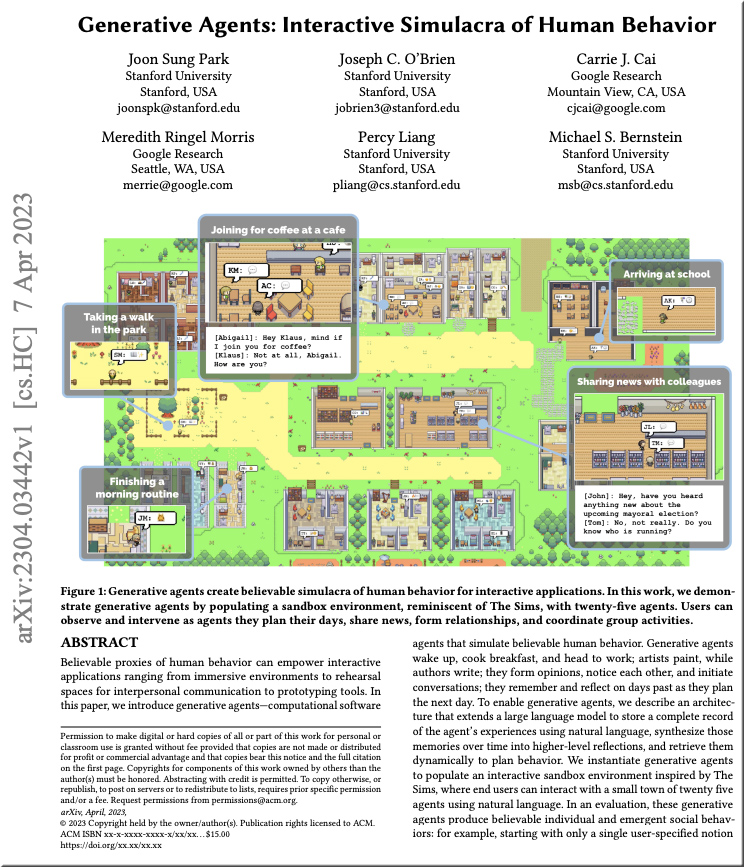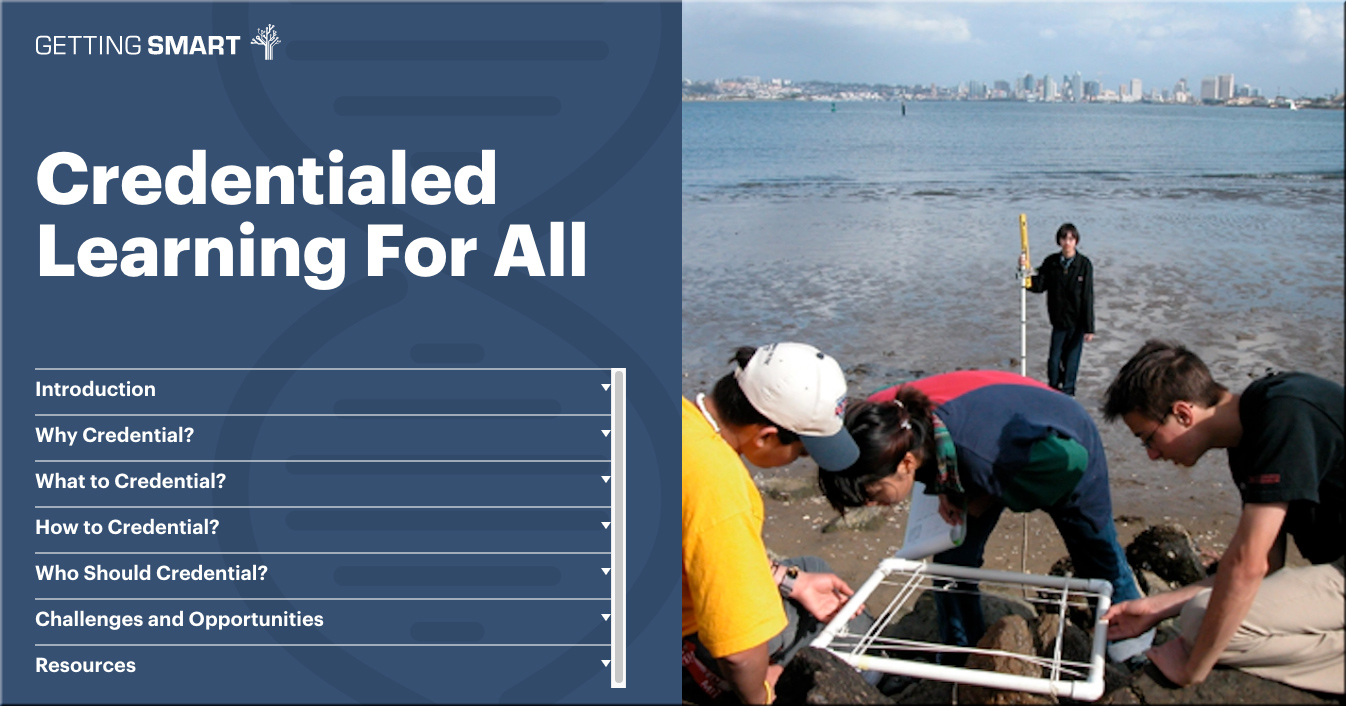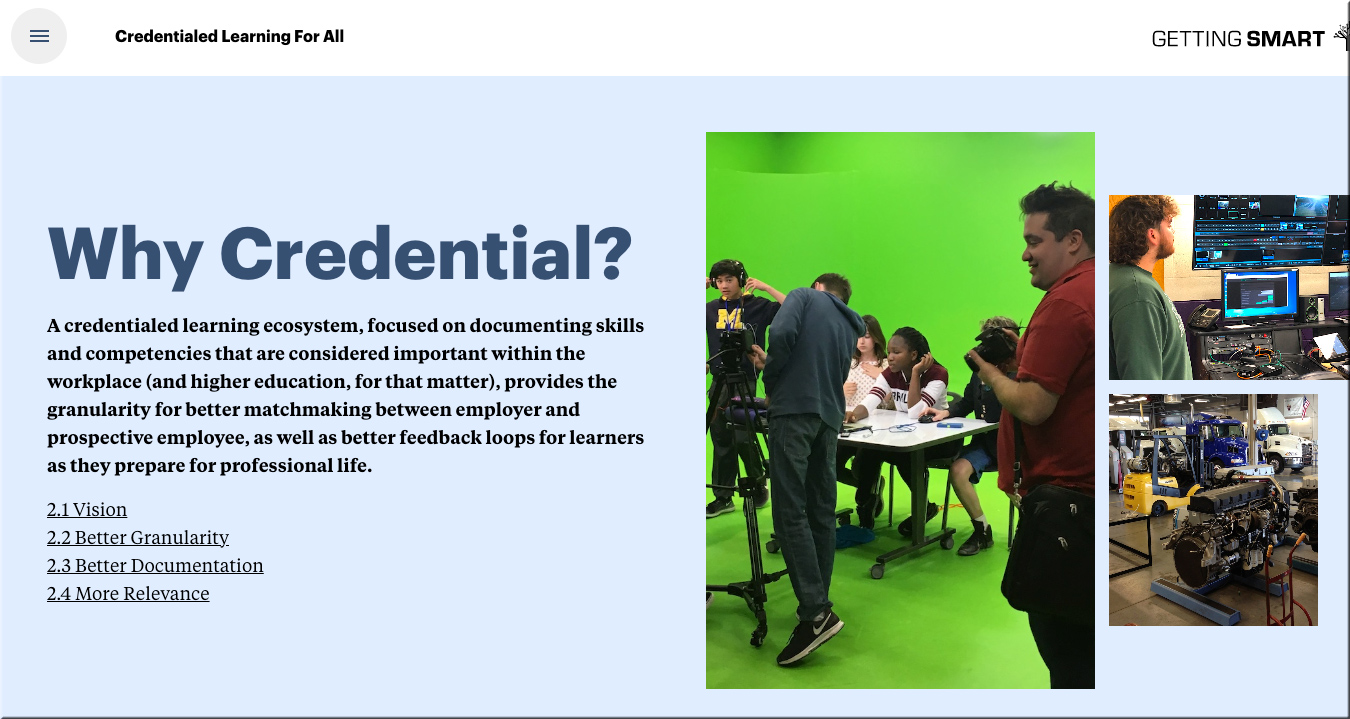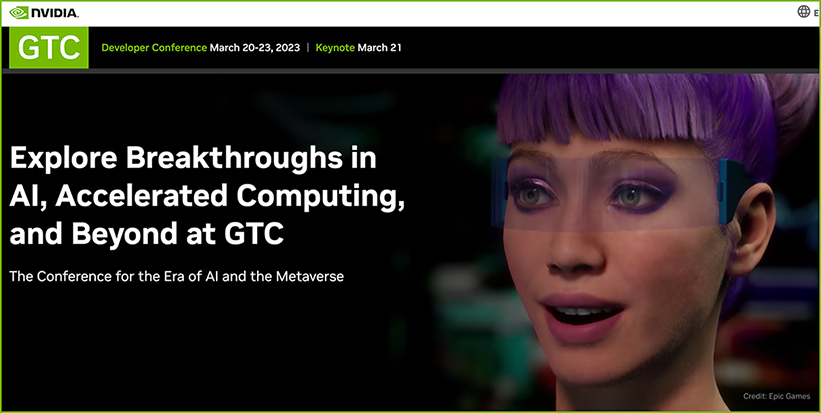AI Tools for Lawyers: A Practical Guide is now “highly recommended” by @lsolum. It provides practical, & specific advice about how to use tools like ChatGPT to improve efficiency & effectiveness of various legal tasks. Download it now! https://t.co/gtbzB7Xvfg
— Daniel Schwarcz (@Dschwarcz) April 12, 2023
AutoGPT might be the next big step in AI.
Here’s why Karpathy recently said “AutoGPT is the next frontier of prompt engineering”
AutoGPT is the equivalent of giving GPT-based models a memory and a body. You can now give a task to an AI agent and have it autonomously come up… pic.twitter.com/mYIJm2IEZy
— Lior? (@AlphaSignalAI) April 11, 2023
AutoGPT, less noise more signal
This is where you should pay attention
Here is why ?
— Linus (???) (@LinusEkenstam) April 11, 2023
AutoGPT is the next BIG thing in AI.
Seems like a new *groundbreaking* update comes out every hour.
Here are a few examples just from the past 24 hours: ?
— Barsee ? (@heyBarsee) April 12, 2023
AutoGPT is the next big thing in AI— from therundown.ai by Rowan Cheung
Excerpt:
AutoGPT has been making waves on the internet recently, trending on both GitHub and Twitter. If you thought ChatGPT was crazy, AutoGPT is about to blow your mind.
AutoGPT creates AI “agents” that operate automatically on their own and complete tasks for you. In case you’ve missed our previous issues covering it, here’s a quick rundown:
-
- It’s open-sourced [code]
- It works by chaining together LLM “thoughts”
- It has internet access, long-term and short-term memory, access to popular websites, and file storage
.
From DSC:
I want to highlight that paper from Stanford, as I’ve seen it cited several times recently:.
- Generative Agents: Interactive Simulacra of Human Behavior
Joon Sung Park, Joseph C. O’Brien, Carrie J. Cai, Meredith Ringel Morris, Percy Liang, Michael S. Bernstein
.
From DSC:
And for a rather fun idea/application of these emerging technologies, see:
- Quick Prompt: Kitchen Design — from linusekenstam.substack.com by Linus Ekenstam
Midjourney Prompt. Create elegant kitchen photos using this starting prompt. Make it your own, experiment, add, remove and tinker to create new ideas.
…which made me wonder how we might use these techs in the development of new learning spaces (or in renovating current learning spaces).
From DSC:
On a much different — but still potential — note, also see:
A.I. could lead to a ‘nuclear-level catastrophe’ according to a third of researchers, a new Stanford report finds — from fortune.com by Tristan Bove
Excerpt:
Many experts in A.I. and computer science say the technology is likely a watershed moment for human society. But 36% don’t mean that as a positive, warning that decisions made by A.I. could lead to “nuclear-level catastrophe,” according to researchers surveyed in an annual report on the technology by Stanford University’s Institute for Human-Centered A.I., published earlier this month.
AutoGPTs are improving at a blazingly fast speed and could soon transform the face of business.
Here's what you need to know:
— Nathan Lands (@NathanLands) April 12, 2023
Credentialed Learning For All — from gettingsmart.com
Vision
Learning happens throughout life and is not isolated to the K-12 or higher education sectors. Yet, often, validations of learning only happen in these specific areas. The system of evaluation based on courses, grades, and credit serves as a poor proxy for communicating skills given the variation in course content, grade inflation, and inclusion of participation and extra credit within course grades.
Credentialed learning provides a way to accurately document human capability for all learners throughout their life. A lifetime credentialed learning ecosystem provides better granularity around learning, better documentation of the learning, and more relevance for both the credential recipient and reviewer. This improves the match between higher education and/or employment with the individual, while also providing a more clear and accurate lifetime learning pathway.
With a fully-credentialed system, individuals can own well-documented evidence of a lifetime of learning and choose what and when to share this data. This technology enables every learner to have more opportunities for finding the best career match without today’s existing barriers around cost, access, and proxies.
Addendum on 4/28/23 — speaking of credentials:
First Rung — from the-job.beehiiv.com by Paul Fain
New research shows stacking credentials pays off for low-income learners.
Stacking credentials pays off for many low-income students, new research finds, but only if learners move up the education ladder. Also, Kansas is hoping a new grant program will attract more companies to participate in microinternships.
The future of education in a world of AI — from oneusefulthing.org by Ethan Mollick
A positive vision for the transformation to come
Excerpt:
Imagine introducing high-quality AI tutors into the flipped classroom model. These AI-powered systems have the potential to significantly enhance the learning experience for students and make flipped classrooms even more effective. They provide personalized learning, where AI tutors can tailor instruction to each student’s unique needs while continually adjusting content based on performance. This means that students can engage with the content at home more effectively, ensuring they come to class better prepared and ready to dive into hands-on activities or discussions.
With AI tutors taking care of some of the content delivery outside of class, teachers can devote more time to fostering meaningful interactions with their students during class. They can also use insights from the AI tutors to identify areas where students might need extra support or guidance, enabling them to provide more personalized and effective instruction. And with AI assistance, they can design better active learning opportunities in class to make sure learnings stick.
Also relevant/see:
ChatGPT is going to change education, not destroy it — from technologyreview.com by Will Douglas Heaven
The narrative around cheating students doesn’t tell the whole story. Meet the teachers who think generative AI could actually make learning better.
Advanced chatbots could be used as powerful classroom aids that make lessons more interactive, teach students media literacy, generate personalized lesson plans, save teachers time on admin, and more.
Will ChatGPT Change How Professors Assess Learning? — from chronicle.com by Becky Supiano
It won’t be easy without their colleges’ support.
What the Past Can Teach Us About the Future of AI and Education — from campustechnology.com by Dr. David Wiley
Current attitudes toward generative AI hearken back to early skepticism about the impact of the internet on education. Both then and now, technology has created challenges but also opportunities that can’t be ignored.
From DSC:
Before we get to Scott Belsky’s article, here’s an interesting/related item from Tobi Lutke:
I just clued in how insane text2vid will get soon. As crazy as this sounds, we will be able to generate movies from just minor prompts and the path there is pretty clear.
— tobi lutke (@tobi) March 29, 2023
Our World Shaken, Not Stirred: Synthetic entertainment, hybrid social experiences, syncing ourselves with apps, and more. — from implications.com by Scott Belsky
Things will get weird. And exciting.
Excerpts:
Recent advances in technology will stir shake the pot of culture and our day-to-day experiences. Examples? A new era of synthetic entertainment will emerge, online social dynamics will become “hybrid experiences” where AI personas are equal players, and we will sync ourselves with applications as opposed to using applications.
A new era of synthetic entertainment will emerge as the world’s video archives – as well as actors’ bodies and voices – will be used to train models. Expect sequels made without actor participation, a new era of ai-outfitted creative economy participants, a deluge of imaginative media that would have been cost prohibitive, and copyright wars and legislation.
Unauthorized sequels, spin-offs, some amazing stuff, and a legal dumpster fire: Now lets shift beyond Hollywood to the fast-growing long tail of prosumer-made entertainment. This is where entirely new genres of entertainment will emerge including the unauthorized sequels and spinoffs that I expect we will start seeing.
Also relevant/see:
Digital storytelling with generative AI: notes on the appearance of #AICinema — from bryanalexander.org by Bryan Alexander
Excerpt:
This is how I viewed a fascinating article about the so-called #AICinema movement. Benj Edwards describes this nascent current and interviews one of its practitioners, Julie Wieland. It’s a great example of people creating small stories using tech – in this case, generative AI, specifically the image creator Midjourney.
Bryan links to:
Artists astound with AI-generated film stills from a parallel universe — from arstechnica.com by Benj Edwards
A Q&A with “synthographer” Julie Wieland on the #aicinema movement.
From DSC:
How will text-to-video impact the Learning and Development world? Teaching and learning? Those people communicating within communities of practice? Those creating presentations and/or offering webinars?
Hmmm…should be interesting!
The Future of Teaching is Here — from samchaltain.substack.com by Sam Chaltain
Excerpts (emphasis DSC):
It’s not sexy, but I feel like Sal Khan’s recent video introducing his Academy’s GPT-fueled AI tutor augurs the future of the teaching profession — and not just at Khan Academy.
…
The tutor is already fully capable of offering personalized feedback, hints and suggestions for just about any topic for which there are already clearly established answers — from solving math equations with parentheses to digesting John Locke’s political philosophy.
…
But now we’ve entered a new chapter — dare I say, a Technological Singularity (20 years early) — one in which Chat-GPT in particular, and the daily flood of AI tools more generally, has changed the nature of the teacher/student relationship even more irrevocably than before.
As a result, from this day forward, the job of a teacher REALLY needs to stop being about transmission.
So what should it start being instead?
…
In which case, the future of teaching is not about transmission, but it is about the other trans- words: transmedia exploration, transdisciplinary weaving, transcultural understanding, and, yes, personal and societal transformation.
How to Create Compelling Writing Assignments in a ChatGPT Age — from chronicle.com by James M. Lang
A recent book offers a road map to new kinds of assignments to inspire your students to write.
Excerpt:
A few days after I returned from the conference, I received a book in the mail that affirmed my newfound sense that 2023 has the potential to usher in an age of creative thinking about teaching and writing: Jessica Singer Early’s Next Generation Genres: Teaching Writing for Civic and Academic Engagement. Although her book doesn’t directly address ChatGPT, it offers exactly the kind of innovative ideas we need as we wrestle — or dance — with the implications of artificial intelligence for college teaching.
…
Clearly Jessica Singer Early has joined the leaning-into camp, seeing artificial intelligence as another invitation to reinvent ourselves in the classroom — just as she encourages readers to do in Next Generation Genres, and as this teacher plans to do in the fall.
20 essential considerations for educators who are developing policies around AI and ChatGPT [Miller]
Also relevant/see:
Learning Designers will have to adapt or die. 10 ways to UPSKILL to AI…. — from donaldclarkplanb.blogspot.com by Donald Clark
From Ethan Mollick on LinkedIn:
Take a look at this simulated negotiation, with grading and feedback. Prompt: “I want to do deliberate practice about how to conduct negotiations. You will be my negotiation teacher. You will simulate a detailed scenario in which I have to engage in a negotiation. You will fill the role of one party, I will fill the role of the other. You will ask for my response to in each step of the scenario and wait until you receive it. After getting my response, you will give me details of what the other party does and says. You will grade my response and give me detailed feedback about what to do better using the science of negotiation. You will give me a harder scenario if I do well, and an easier one if I fail.”
Samples from Bing Creative mode and ChatGPT-4 (3.5, the free version, does not work as well)
I’m having a blast with ChatGPT – it’s testing ME! — from by Mark Mrohs
Using ChatGPT as an agent for asynchronous active learning
I have been experimenting with possible ways to incorporate interactions with ChatGPT into instruction. And I’m blown away. I want to show you some of what I’ve come up with.
A Spotify model of personalised higher education — from timeshighereducation.com by Michael Rosemann and Martin Betts
With technology offering greater potential for a personalised approach to higher education, Michael Rosemann and Martin Betts look at what universities can learn from the ubiquitous music platform Spotify
Excerpts (emphasis DSC):
Selection, or the P(upil)-route as educationalist Dan Buckley calls it, means personalisation driven by the learner. This is the fastest-moving form of personalised learning. Not only do students benefit from true omnichannel education – choosing between face to face and online – they also independently navigate the internet’s resources and online databases in search of the knowledge that will help them to achieve their learning targets.
…
Automation, or the A-route, is the new enabler of personalised learning. As with personalised medicine, finance or entertainment, education is starting to use digital technologies to unlock new models of tailored engagement. While for most universities, AI-driven, personalised education is not an option as the required capabilities are missing and significant investments would be necessary, there is a range of alternative forms of automated personalised learning. For this, we look to providers outside the sector for inspiration.
Here are Spotify-inspired ideas that universities ambitious enough to provide personalised learning could explore.
From DSC:
Rosemann & Betts use the term “omnichannel education” — I like that term. Very nice.
Explore Breakthroughs in AI, Accelerated Computing, and Beyond at GTC — from nvidia.com
The Conference for the Era of AI and the Metaverse
Addendums on 3/22/23:
Generative AI for Enterprises — from nvidia.com
Custom-built for a new era of innovation and automation.
Excerpt:
Impacting virtually every industry, generative AI unlocks a new frontier of opportunities—for knowledge and creative workers—to solve today’s most important challenges. NVIDIA is powering generative AI through an impressive suite of cloud services, pre-trained foundation models, as well as cutting-edge frameworks, optimized inference engines, and APIs to bring intelligence to your enterprise applications.
NVIDIA AI Foundations is a set of cloud services that advance enterprise-level generative AI and enable customization across use cases in areas such as text (NVIDIA NeMo™), visual content (NVIDIA Picasso), and biology (NVIDIA BioNeMo™). Unleash the full potential with NeMo, Picasso, and BioNeMo cloud services, powered by NVIDIA DGX™ Cloud—the AI supercomputer.
On the K-12 side of things:
6 Ways to Use ChatGPT to Save Time — from edutopia.org by Todd Finley
Teachers can use the artificial intelligence tool to effectively automate some routine tasks.
Excerpt:
In the paragraphs that follow, I’ve divided these tasks into the following categories: planning instruction, handouts and materials, differentiation, correspondence, assessment, and writing instruction and feedback. Welcome to the revolution.
Lesson plans: Ask ChatGPT to write a lesson plan on, say, Westward Expansion. The tool composes assessments, activities, scaffolding, and objectives. Want that in the form of problem-based learning or revised for a flipped classroom? ChatGPT can adjust the lesson plan according to your instructions.
I’m a high school math and science teacher who uses ChatGPT, and it’s made my job much easier — from businessinsider-com.cdn.ampproject.org by Aaron Mok; with thanks to Robert Gibson on LinkedIn for this resource
Excerpt:
- Shannon Ahern, a high school math and science teacher, was afraid that ChatGPT would take her job.
- But her mind changed after she started using the AI for class prep, which saved her hours of time.
- Here’s how Ahern is using ChatGPT to make her job easier, as told to Insider’s Aaron Mok.
On the higher education side of things:
Using AI to make teaching easier & more impactful — from oneusefulthing.substack.com by Ethan Mollick
Here are five strategies and prompts that work for GPT-3.5 & GPT-4
Excerpt:
But one thing that is not changing is the best way for people to learn. We have made large advances in recent years in understanding pedagogy – the science of learning. We know some of the most effective techniques for making sure material sticks and that it can be retrieved and used when needed most.
Unfortunately, many of these advanced pedagogical techniques are time-consuming to prepare, and many instructors are often overworked and do not have the resources and time to add them to their teaching repertoire. But AI can help. In the rush to deliver AI benefits directly to students, the role of teachers is often overlooked.
Teaching: What You Need to Know About ChatGPT — from chronicle.com by Beth McMurtrie
Excerpt:
Digital literacy is more important than ever. Artificial-intelligence tools, and generative AI in particular, raise a host of ethical, political, economic, and social questions. Plus, this tech is soon going to be everywhere, including students’ future professions. (The technology behind ChatGPT, in fact, just got an upgrade this week.) Colleges need to figure out how to graduate digitally savvy students in all disciplines.
“The integration of technology into our lives is so pervasive that the restriction of education about AI to the computer scientists and the computer engineers makes no more sense than the restriction of taking English classes by English majors,” said Weber.
ChatGPT could be an effective and affordable tutor — from theconversation-com.cdn.ampproject.org by Anne Trumbore
Excerpt:
Yet the history and research of intelligent tutors show that using the right design to harness the power of chatbots like ChatGPT can make deeper, individualized learning available to almost anyone. For example, if people use ChatGPT to ask students questions that prompt them to revise or explain their work, students will have better learning gains. Since ChatGPT has access to far more knowledge than Aristotle ever did, it has great potential for providing tutoring to students to help them learn more than they would otherwise.
















